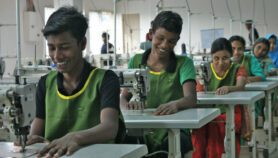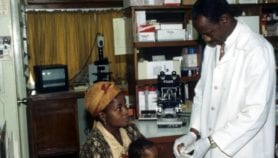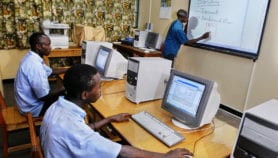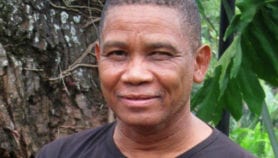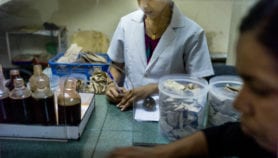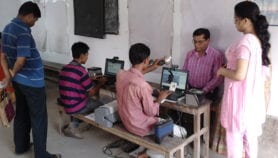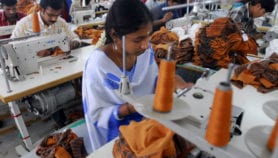Send to a friend
The details you provide on this page will not be used to send unsolicited email, and will not be sold to a 3rd party. See privacy policy.
Disaster research can help future interventions, but urgency should never excuse exploitation of survivors, says Athula Sumathipala.
Large scale disasters, such as the 2004 tsunami in the Indian Ocean and recent tropical cyclones in the Caribbean, have highlighted how human rights, ethical issues and social policies pose challenges to disaster research. This is particularly true as disasters widen the global divide and the disparities already existing within societies, especially in developing countries.
Research about people is crucial in the aftermath of disasters — but it should be contextual, and culturally and regionally appropriate.
Disasters, by their very nature, make individuals and social groups — especially children, women and impoverished communities — more vulnerable, be it in the developed or developing world. Exploiting or abusing disaster survivors for cheap or easy research should never be tolerated.
Rushed response risks exploitation
Because natural disasters are often sudden (like cyclones) research can sometimes start without proper scientific rigour or ethical consideration. Researchers may rush to collect data, without adequate planning.
This can lead to undue pressure to participate, particularly when research is combined with humanitarian aid or clinical care. Some survivors may not even realise they are taking part in research.
In my home country of Sri Lanka, for example, the 2004 tsunami was followed by a huge influx of foreign organisations and individuals offering humanitarian aid, including counselling. Some advocated compulsory counselling for survivors, though this runs against recommendations from the WHO and the Cochrane Collaboration — a not-for-profit organisation that provides information on the effects of health care.
In parallel to these ‘services’, doctoral students from developed countries acquired data to finish their theses, harassed survivors with numerous questionnaires and even collected blood to research neurobiological stress markers. In the rush to provide assistance, a lack of familiarity with local customs caused cultural insensitivities. For example, many people would prefer to seek help from a temple rather than a therapist.
A better approach
But researchers and ethicists can work together to overcome such problems.
Researchers are in a strong position to promote and safeguard ethical standards — if they are truly convinced by and committed to them. They know what methods their research needs, and if they consider ethics as a part of research design, they can improve the quality of their results by incorporating higher ethical standards and appropriate safeguards.
Many researchers may not be familiar with broader ethical issues. But they can help ethicists identify specific issues in advance and work with them to clarify how these ethical problems can be overcome.
There is no doubt that research in disaster-affected areas is necessary. It can improve future disaster management and help mitigate the effects of these catastrophes. For example, studies have shown that ‘psychological debriefing’, intended as an early intervention after trauma, actually delays natural recovery and is counterproductive. More research is needed on disaster-related interventions.
But research in the aftermath of a disaster must consider the needs and priorities of the affected communities. And studies should be limited to research that cannot be conducted under non-disaster conditions. For example, a clinical drug trial for diabetes or asthma, which can be done under normal conditions, should not be done in disaster-affected populations.
International standards
To protect vulnerable survivors, a robust and ethical review of research involving them is needed, as well as closer monitoring.
An international framework should be developed by both agencies funding research and host countries to prevent unethical data collection and exploitation of disaster survivors. It should have stringent policies and guidelines that cover issues such as the type of research needed, how soon it should be done, local needs and priorities, and the complexities that arise in combining aid and clinical care with research.
We must pay particular attention to enhancing ethical standards for research during the aftermath of disasters such as cyclones. For example, approval of research by ethics review committees — both in the country where the research is being carried out and in the nation where external collaborators are based — should be strictly observed. Prior ethics review and approval can be given for areas subject to recurrent disasters to speed up the review process, although consulting with disaster-affected communities will still be needed before research can begin. Sticking to the basic principle of ‘freely given informed consent’ is crucial, as is avoiding undue inducements to participate in research projects.
Researchers and review committees must be more vigilant to ensure disaster-related research adheres to general ethical principles and that participants are protected.
Athula Sumathipala is a clinical researcher at the Institute of Psychiatry in Kings College London, United Kingdom and honorary director of the Institute of Research and Development in Sri Lanka.
This article is part of a Spotlight on Tropical cyclones in the Indian Ocean.




